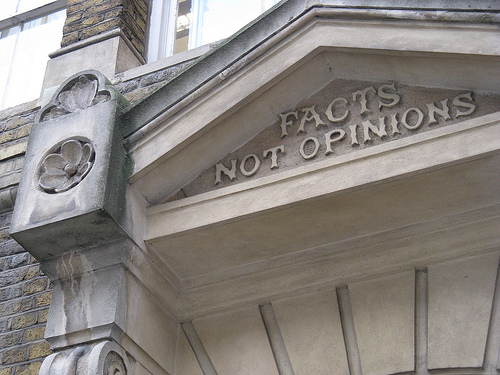Recently, I had the unfortunate opportunity to enter into an agreement to create a Wikipedia page for a company. Based in Russia, the company was more than notable and qualified to have a Wikipedia page, they just needed an expert Wikipedia writer to create the content (research the topic, format, cite, code, and post) for their page. What is unfortunate is that the company did not fully understand how to create a Wikipedia page and as such, there was a dispute with the agreement.
After creating the initial draft for the client, they terminated the agreement stating that there were numerous errors in fact with the article draft I provided to them. Although the information in the draft was based on information from their website and supported by reliable sources in online magazines and newspapers, the client still stated there were factual errors with the content. Long story short, the client refused to continue with the process and an ensuing PayPal dispute that they filed was denied against them in my favor. While I will not disclose the company as they are one of the fastest growing companies in their industry and do not wish to harm their reputation, I will say that their failure to understand the process of how to create a Wikipedia page was the basis for the termination of the agreement (which they requested to reinstate and have me finish the project – of which I refused).
The reason I tell this story is to help educate potential clients of the steps that everyone must go through in order to create a Wikipedia page. Although the company referenced above was aware of the process, they simply refused to understand any of the points that I am about to make in this article. Once you understand the process that I use as an expert Wikipedia writer, then you will see how beneficial it is to choose me to create your article over any other freelancer out there.
Facts versus reliable sources / what goes in the 1st draft:
One of the common misconceptions that people make is that Wikipedia is based on facts that are supported by references. This is true to a point; however, Wikipedia gives more weight to reliable sources than they do to facts. They logically conclude that if something is written in a reliable source, then it obviously must be true and as such it can be included in an article supported by the reliable source where it is printed.
In an interview with the Atlantic City Weekly, my favorite comedian Brian Regan pokes fun of Wikipedia and how reliable it is. “I refuse to go to Wikipedia because I think that their information is all wrong,” stated Regan. “A friend went on there and the first three things about me were wrong.” While I love Brian and his shows (yes, the family gets out to see him every time he is in South Bend), his failure to understand how Wikipedia treats facts versus reliable sources has basically made him an “anti-Wikipedian” (if there is such a word).

So, here is how it works. When you choose me as a freelancer, you will receive an initial draft of your article. Be advised that the article will likely contain some factual errors. The reason for this is due to the sources used to obtain the information. As Wikipedia wighs reliable sources very heavy, I create the initial draft from such sources and we all know that newspapers and magazines often do not get the story 100% accurate which creates a slight handicap for me. As an example, if the reliable sources say that someone is the co-founder of a company when in fact they were only an early investor, then the Wikipedia page will reflect that the person was a co-founder. As such, your initial draft is likely to contain errors in facts due to reliable sources not writing the correct information about you, your company, or your product. Don’t get shocked when the draft comes in and lists your company as being worth $ 5 million as opposed to $ 10 million. Even if $ 10 million is the true number, the $ 5 million will be used in the draft as that is what the source says.
Correcting the facts / Killing promotion:
Once you receive your draft article, it is important to look through it carefully to help correct any factual issues. Any issues dealing with facts need to be pointed out so that I can correct them. This could be anything from the valuation of a company, the type of operating system used by a mobile app, the year a company was founded, and anything else that is not accurate. After reviewing these issues, I can correct all of the factual errors assuming that we have a reliable source that shows the correct information. As such, take a deep breath as you go through the 1st draft and make sure to make a list of anything that you want to see added, removed, or corrected. Once I receive these items from you, I will work with the first draft and correct facts, add or remove content, as long as the changes conform to Wikipedia guidelines. I will not create a Wikipedia page that does not conform to Wikipedia guidelines, which is the reason why I turn down many inquiries for people requesting the creation of a page.

Yes, “conforms to Wikipedia guidelines” is a key term that I love to use. The reason for this is that I often receive corrections back on the 1st draft that includes the addition of promotional wording. Unfortunately, Wikipedia does not like promotional articles or promotional wording within articles. As such, I will try to include the information, but it will need to be written in a way that is not promotional. Here is an example:
Promotional tone: “The company’s move into the Asian market in 2010 helped launch them into the ranks as one of the largest international telecommunications companies by 2013.”
Non-Promotional: “The company expanded into the Asian market in 2010. In 2013, it was listed in Forbes as one of the largest international telecommunications companies.”
So you can see that killing the promotional wording must be done, but at the same time the information can be included in the article as long as it is supported by a reliable source. Any other issues (e.g., the wording of a specific sentence) will also be addressed at the same time and a second draft sent to you for review.
Final stage / what to expect:
The draft process will repeat until we get to the draft that you like. Keep in mind that I will not post anything to Wikipedia without a client approving of the content 100%. For the majority of clients, the draft process ends after they receive the 2nd draft and make a few minor corrections or last minute additions. So in all, your article is likely to be completed after the 2nd draft. Once you approve the final draft, I post the article live. After all, it is a waste of time to submit an article to Wikipedia for approval as this only gives false hope to people who get their articles approved and discourages those who don’t.
Summing it up:
The process that I use to create a Wikipedia page for a client is rather simple. I will create the first draft based on reliable sources that I am able to obtain. I welcome clients to send me their “dream” article draft or provide me with sources that they would like used within their articles as this will help guide me as I create the first draft. Once you receive the 1st draft, you simply go through and make any corrections you want to see. I will then create a 2nd draft for you to review and post the article live once you give the final approval.
Time frame for completion of an article is determined by how quickly you can turn around any comments you have with drafts that you receive and how much additional information you want included in the article. Typical time frame is approximately 3 to 7 days to receive the initial draft, then 24-72 hours for any additional drafts.
If you are considering hiring a freelancer to create a Wikipedia page, please choose wisely. While there are many people who will post anything you want on Wikipedia, you are getting more than a writer when you hire me. I will guide you through the process and help you understand why certain items were worded a certain way within your article. Your article will also conform to Wikipedia guidelines which gives your article a higher rate of viability than an article simply written and posted by any freelancer.
Business & Finance Articles on Business 2 Community
(307)
Report Post






